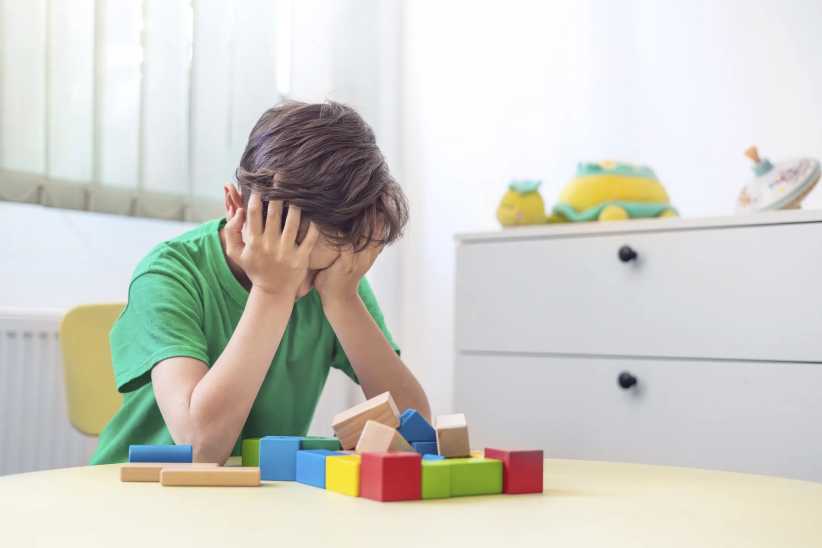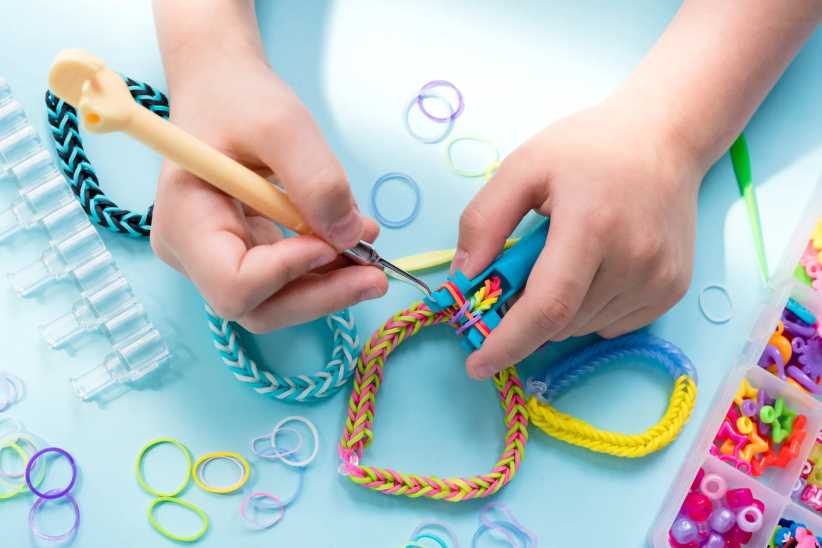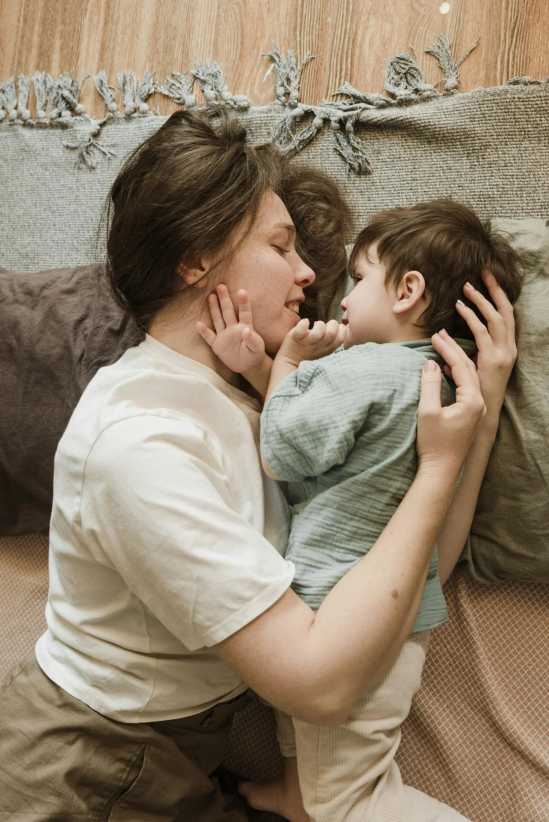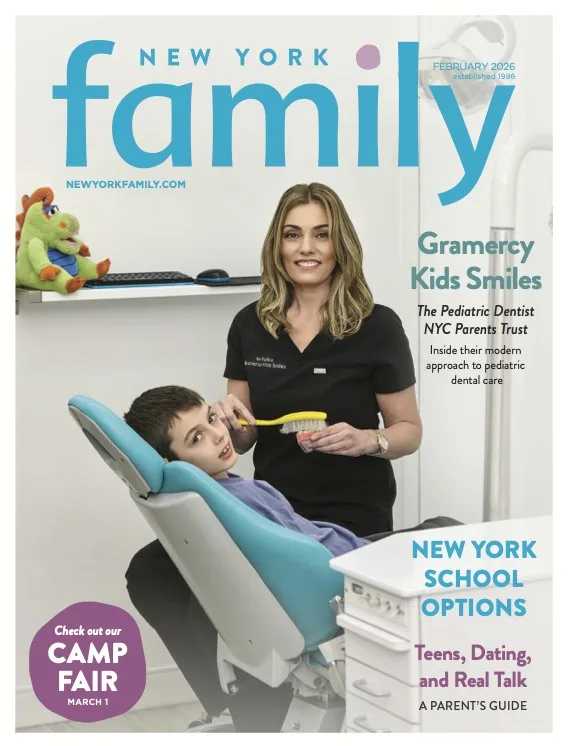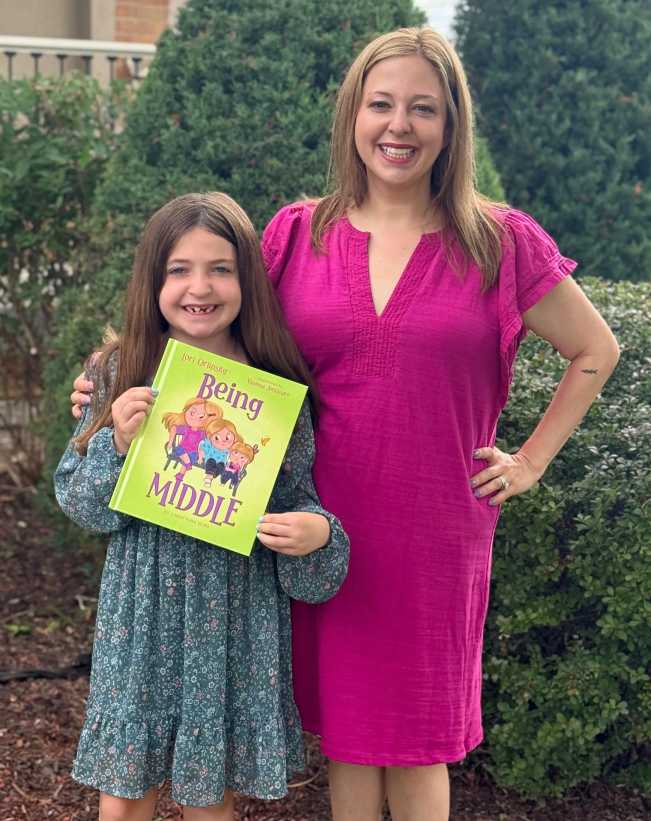
In the Middle of it All: Life With a Classic Middle Child
Happy Middle Child Day! An honest look at life in the middle
When baby Avery joined the family party in 2022, my oldest, Hayley (age 9), responded exactly how you’d imagine when she first saw her new baby sister: “She’s perfect! She looks like a doll! Can I hold her?!”
Then there was Ellie, age 6, now officially the middle child. She gave her brand-new sister a long, suspicious stare and—without blinking—asked, “When can I see her naked?”
And that was my official welcome to the wild, weird, wonderful world of parenting a middle child. Ask any parent of a middle child, and they’ll smile knowingly: the middle child often comes with a big personality, even bigger stories, and a refreshingly unfiltered way of saying exactly what’s on their mind.
Psst… Check Out Tamron Hall on Motherhood, Her Son Moses, and the Magic of Harlem
The Middle Child in Pop Culture
From Jan Brady and Stephanie Tanner and Malcolm Wilkerson and Alex Dunphy, TV has long spotlighted the classic middle child, full of big feelings, hilarious antics, and a knack for stealing scenes. Why? Because their quest to stand out in the sibling lineup makes for comedy gold, and some seriously relatable moments.
The Battle to be Seen
My oldest has found her passion in competitive dance, and my youngest charms everyone just by being her adorable self. And then there’s Ellie — our spirited middle — who wants nothing more than to feel seen. Sometimes (OK, most times) that means acting out just to get a little attention, even if it’s not the kind she really wants.
She’s quick to point out the hand-me-downs, the lack of her own room, and don’t even get her started on the first week of school – when teachers think they already know her just because they had her big sister in class. It’s tough trying to carve out your own identity when you’re constantly living in someone else’s shadow.
“Middle child syndrome is the idea that middle kids get less attention due to birth order, shaping their personality and relationships,” says Dr. Sandra Whitehouse, senior director at the Child Mind Institute. “They’re often squeezed between the spotlight of the oldest and the needs of the youngest.”
The Time We (Accidentally) Forgot Her
Ellie never lets us forget that, well… we sometimes forget about her. And I’ll be honest – it’s actually happened. One week, the girls were being picked up and dropped off from dance in a carpool. When Ellie didn’t come through the door with her sister, we panicked – called the dance studio, checked outside, retraced our steps. Turns out, she was home the whole time… quietly hanging out in her room. Classic middle child move: present, but somehow invisible.
The Search for Her Thing
We’ve let Ellie try just about everything in hopes she’d find her footing in our family. She’s chopped through boards in Taekwondo, splashed her way through swim team, belted out some very creative renditions of Taylor Swift songs (shoutout to her very patient vocal coach), and cartwheeled through enough tumbling classes to leave us all dizzy — all in search of her “thing.”
But even with all that love and effort, she still wrestles with the classic signs of middle child syndrome – feeling overlooked, compared to her siblings, and unsure of where exactly she fits. Ellie may sometimes feel caught in the middle, but her birth order could be her superpower.
“Middle children are well-set up to be flexible,” says Dr. Whitehouse. “They learn to adapt, rely on siblings for support, and often develop strong relationship skills. These children are typically able to consider a variety of perspectives and balance communication with independence.”
In other words, Ellie’s middle-child experience isn’t just shaping her now—it’s setting her up to thrive in friendships, leadership, and life.
A Parenting Wake Up Call
Like most parents, I’m just doing my best to stay afloat and make sure Ellie is happy and thriving (my motto is surviving, not thriving). But I’d be lying if I said it’s been easy. There’s been plenty of heartache, more than a few tears, and dozens of therapy sessions to help me realize something hard but necessary: I was parenting Ellie like the child I wanted her to be, not the child she was, who was quietly struggling with self-doubt and a deep need to feel seen.
So, I set out on a mission to help Ellie feel truly seen, valued, and included. And to my surprise, her behavior shifted, her confidence grew, and her bright, bold personality began to shine through.
In my quest to bring Ellie more joy, I discovered something even bigger: middle children are incredible. And with the right support, they can thrive in the most unique and powerful ways.
Here are some tried-and-true tips for how parents can truly see, support, and celebrate their middle kids:
Listen With Intention: Try to slow down and really listen – even when they’re not asking for attention. Being heard helps them feel valued.
Let Them Be the Leader: Give your middle child chances to lead—whether it’s choosing the family movie, helping a younger sibling, or taking charge of a project. It reminds them they’re trusted and capable.
Schedule a Permanent Date Night: Whether it’s a game night, an ice cream run or just the neighborhood park, this special one-on-one time goes a long way in showing middle kids they matter.
Quit Comparing: Don’t compare your middle child to their siblings – this only furthers the dialogue inside their head. Celebrate them for who they are, not how they measure up.
Celebrate their Accomplishments: From progress reports to simple artwork, go out of your way to show your middle child you see them and are proud of them.
Honor their Individuality: Celebrate what makes them, well, them! Take time to really notice your middle child’s unique interests – even (and especially) when they’re different from their siblings. Let them choose their own activities, decorate their space, or dress how they want.
Stop Reinforcing the Stereotype: Avoid calling them “the middle child” as if it’s their main identity. Refer to them by name and be mindful of how you talk about middle children, especially in front of them. The words you use shape how they see themselves.
Capture Their Moments: Make sure their milestones—big or small—get the same photo ops, cheers, and memory-keeping as their siblings’. Snap the picture. Write the note. Hang the artwork.
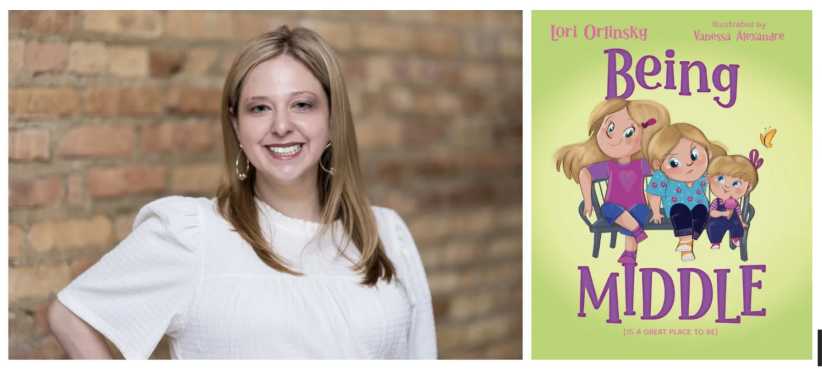
Lori Orlinsky is a freelance writer and award-winning, bestselling children’s book author. The second book in her BEING ME series, Being Middle will be released today on August 12 on National Middle Child’s Day!
Psst… Check Out Struggling with Conflicting Feelings About Motherhood? A Peek Into Maternal Ambivalence


